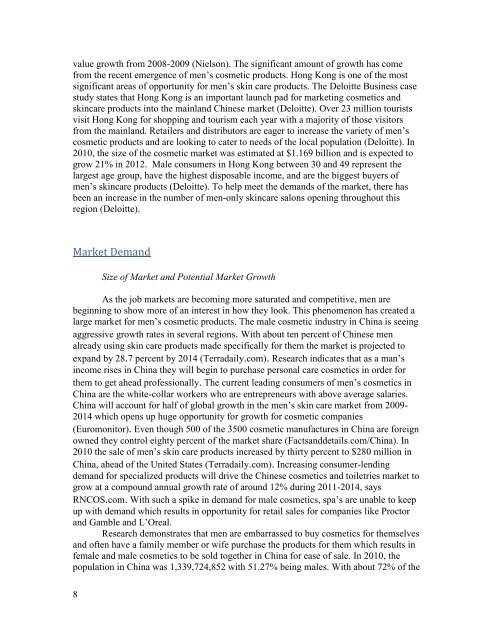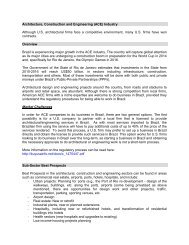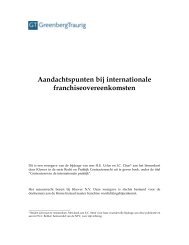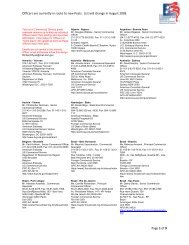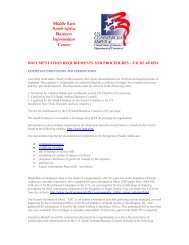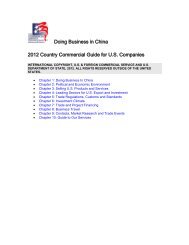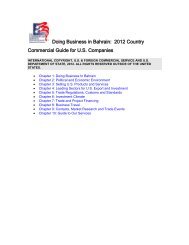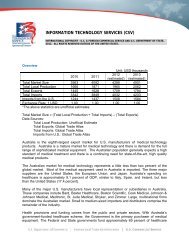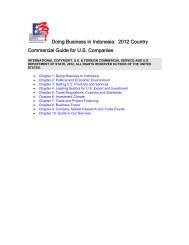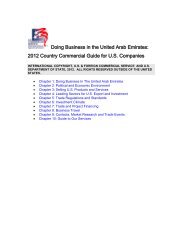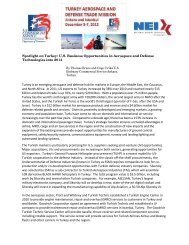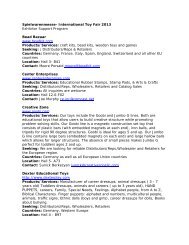The Chinese Men's Cosmetic Market: Guangzhou, Hong Kong and ...
The Chinese Men's Cosmetic Market: Guangzhou, Hong Kong and ...
The Chinese Men's Cosmetic Market: Guangzhou, Hong Kong and ...
You also want an ePaper? Increase the reach of your titles
YUMPU automatically turns print PDFs into web optimized ePapers that Google loves.
value growth from 2008-2009 (Nielson). <strong>The</strong> significant amount of growth has come<br />
from the recent emergence of men’s cosmetic products. <strong>Hong</strong> <strong>Kong</strong> is one of the most<br />
significant areas of opportunity for men’s skin care products. <strong>The</strong> Deloitte Business case<br />
study states that <strong>Hong</strong> <strong>Kong</strong> is an important launch pad for marketing cosmetics <strong>and</strong><br />
skincare products into the mainl<strong>and</strong> <strong>Chinese</strong> market (Deloitte). Over 23 million tourists<br />
visit <strong>Hong</strong> <strong>Kong</strong> for shopping <strong>and</strong> tourism each year with a majority of those visitors<br />
from the mainl<strong>and</strong>. Retailers <strong>and</strong> distributors are eager to increase the variety of men’s<br />
cosmetic products <strong>and</strong> are looking to cater to needs of the local population (Deloitte). In<br />
2010, the size of the cosmetic market was estimated at $1.169 billion <strong>and</strong> is expected to<br />
grow 21% in 2012. Male consumers in <strong>Hong</strong> <strong>Kong</strong> between 30 <strong>and</strong> 49 represent the<br />
largest age group, have the highest disposable income, <strong>and</strong> are the biggest buyers of<br />
men’s skincare products (Deloitte). To help meet the dem<strong>and</strong>s of the market, there has<br />
been an increase in the number of men-only skincare salons opening throughout this<br />
region (Deloitte).<br />
<strong>Market</strong> Dem<strong>and</strong><br />
8<br />
Size of <strong>Market</strong> <strong>and</strong> Potential <strong>Market</strong> Growth<br />
As the job markets are becoming more saturated <strong>and</strong> competitive, men are<br />
beginning to show more of an interest in how they look. This phenomenon has created a<br />
large market for men’s cosmetic products. <strong>The</strong> male cosmetic industry in China is seeing<br />
aggressive growth rates in several regions. With about ten percent of <strong>Chinese</strong> men<br />
already using skin care products made specifically for them the market is projected to<br />
exp<strong>and</strong> by 28.7 percent by 2014 (Terradaily.com). Research indicates that as a man’s<br />
income rises in China they will begin to purchase personal care cosmetics in order for<br />
them to get ahead professionally. <strong>The</strong> current leading consumers of men’s cosmetics in<br />
China are the white-collar workers who are entrepreneurs with above average salaries.<br />
China will account for half of global growth in the men’s skin care market from 2009-<br />
2014 which opens up huge opportunity for growth for cosmetic companies<br />
(Euromonitor). Even though 500 of the 3500 cosmetic manufactures in China are foreign<br />
owned they control eighty percent of the market share (Facts<strong>and</strong>details.com/China). In<br />
2010 the sale of men’s skin care products increased by thirty percent to $280 million in<br />
China, ahead of the United States (Terradaily.com). Increasing consumer-lending<br />
dem<strong>and</strong> for specialized products will drive the <strong>Chinese</strong> cosmetics <strong>and</strong> toiletries market to<br />
grow at a compound annual growth rate of around 12% during 2011-2014, says<br />
RNCOS.com. With such a spike in dem<strong>and</strong> for male cosmetics, spa’s are unable to keep<br />
up with dem<strong>and</strong> which results in opportunity for retail sales for companies like Proctor<br />
<strong>and</strong> Gamble <strong>and</strong> L’Oreal.<br />
Research demonstrates that men are embarrassed to buy cosmetics for themselves<br />
<strong>and</strong> often have a family member or wife purchase the products for them which results in<br />
female <strong>and</strong> male cosmetics to be sold together in China for ease of sale. In 2010, the<br />
population in China was 1,339,724,852 with 51.27% being males. With about 72% of the


